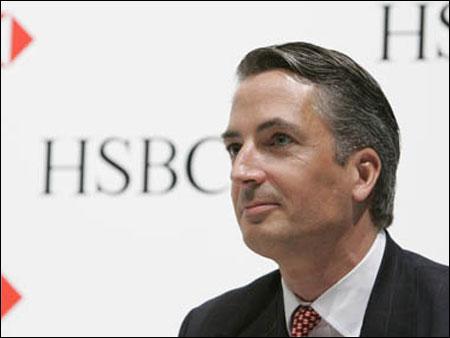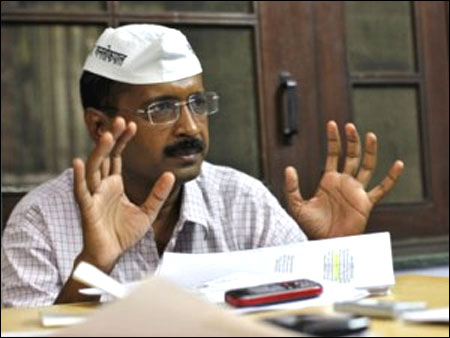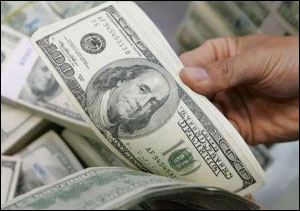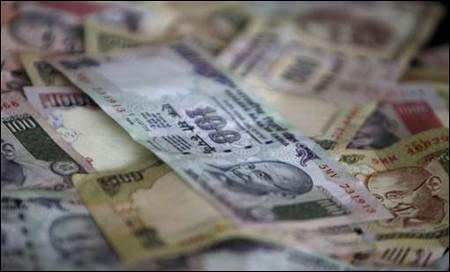
HSBC appointed group veteran Stuart Milne as chief executive of its India operations in April last year. The period has been extraordinarily tough as the bank came under a cloud because of money laundering allegations. In his first interview after the allegations were made, Milne, a Scotsman born in Baghdad, speaks to Shyamal Majumdar & Manojit Saha about the bank's gameplan in India. Excerpts:
The US Senate Committee report made two observations - HSBC India's internal control systems in India is weak and its compliance department is understaffed. What are the corrective actions you have taken?
I want to correct some misconceptions. The report you are referring to made absolutely no reference to HSBC India's banking operations. It did make some observations on deficiency in staffing in our back office, which is not a part of the banking operations.
The observations, made many months ago, related to the back office's deficiency in handling efficiently and quickly the money laundering alerts coming from the US. We have subsequently added more resources and are up to the task now.
Why did RBI carry out an inspection of the head office and branches?
The regulator wanted to know certain facts. In any case, there is nothing that the RBI doesn't know about our India operations.
Are you saying the Senate Committee report didn't say anything about India?
No, except for the part about understaffing in the back office. About the general observations about our global business, we have absolutely accepted the responsibility for what happened. We are now insisting on the highest level of global standards of know- your-customer norms in each country we operate in. No other bank does this, as they mostly follow the local regulations.
We have also made our business simpler and easier to manage. That includes restructuring the company around four global businesses and 10 support functions. We have also exited businesses which don't fit into our strategy or expose us to too much risk.
Click on NEXT for more...

What's your response to the allegations made by Arvind Kejriwal (leader of the Aam Aadmi Party) about how HSBC customers would hand over cash in India, which would then show up in their accounts overseas?
This is an allegation that has been made by an individual and not any government agency or the regulator. HSBC is a high-profile name, so even unsubstantiated allegations against it figures in the headlines. HSBC doesn't do and hasn't done anything that Mr Kejriwal has alleged.
Let me repeat in no uncertain terms that HSBC, under no circumstances whatsoever, tolerates any kind of behavior which is against the letter and spirit of the law. If it ever were to be found that something like that had happened, then obviously the most severe consequences will happen to the individual concerned.
HSBC was banking on its deal with RBS for expanding its presence in India. But the deadline lapsed before regulatory clearances. Do you hold the global environment in which HSBC was operating for the failure of the talks?
Absolutely not. We were discussion the deal for three years and had extended the deadline a couple of times. We came to a point in October last year, when we said we are not getting anywhere with this so let's just walk away. And we informed the regulator about our position.
You may have observed that since then, RBS has not been able to sell that business to anyone else. This deal was a challenging one to do and we always knew it is going to a challenging one from RBI's perspective.
Click on NEXT for more...

Your predecessor talked about a billion dollar profit target. It looks tough in the present circumstances.
Yes, we are not quite there. What is more important for me is not necessarily meeting a profit number. What is important is the market position. So, I am looking at the drivers and not the outcome. The billion dollar target is feasible. This also means, the economy has to grow and customers have to grow.
HSBC was trying to correct the imbalance between its retail business and fee business. So you were putting a lot of focus on retail. What has been the progress?
We have made good progress in the last 12 months. If you look at the results, we have made a profit of $ 41 million from retail banking last year as compared to a loss in the previous year. We have got good traction now on the retail side. We have four business lines -- private banking where we have good growth but it is still a small business.
Retail banking as I said has moved from loss to profit. Then we have global banking where we deal with very big clients. And we have commercial banking which deals with middle market, that is, micro, small and medium enterprises business.
As far as the global banking and markets are concerned, we have maintained a very strong position. In the middle market business, the profit came down mainly due to depreciation of the rupee and we had one or two bad debts in 2012. But the middle market business has future potential for growth.
But the middle market business has suffered the most because of the tough external environment.
When you have a difficult market, what you typically find is that the smaller companies suffer more than the bigger companies because of the pricing power of the bigger companies. So, one has to be very careful in choosing the right kind of companies.
It's true that the growth rate has slowed down and we are not expecting any significant pick up next year. But the fact is that there are still some companies in this segment which are doing well.
Click on NEXT for more...

Which are the segments?
Companies engaged in the service sector are doing well and also some manufacturing companies. While growth may not so much, these companies are becoming more connected internationally. A significant part of India's exports are financed by HSBC.
And we have a leading foreign exchange business; so we are putting that product expertise together with customers' need to manage the risk. In the next 5-10 years, this is going to be the high growth segment.
You have been growing the credit card business. What's your strategy on growing the unsecured lending business?
We are more focused on secured lending. The mortgage business is important for us because it's a key requirement for our target segment - the mass affluent customers. Credit card is more of a customer's need, so we provide that product.
We are not looking at credit card as a product where we have to meet certain sales goals. We are also doing personal loans. These are short term, unsecured loans to individuals. That's a need for individuals typically for cash flow management.
You received RBI's approval for opening new branches three years ago. Have you applied for new branches?
While we were in discussions with RBS, we did not request for any new branch licence. We have not submitted any application for new branches. Please understand that as a foreign bank, we do not have the freedom of choosing the location for opening branches.
Opening branches in under-banked areas does not make any sense for us. So, for the time being we have not submitted any application. The distribution strategy is an outcome of customer strategy.
Click on NEXT for more...

Foreign banks having more than 20 branches has been brought on par with Indian banks as far as priority sector loan targets are concerned. How difficult will it be for foreign banks to achieve it in five years?
The norms on priority sector lending are challenging. The norms have been changed very dramatically. Now we have to meet a higher standard within five years, which is going to be, impossible. I agree that it is a legitimate policy tool of the government to use priority sector lending targets to drive their objectives.
It is also understood that as a large foreign bank, it is perfectly reasonable to say that you should also achieve the same standard. But we should have been given more time.
The central bank is prodding foreign banks to take the subsidiary route for operating in India. What is your view regarding this?
We are open to taking the subsidiary route. We expect the norms in the next few months. The tax issue - which was a hurdle - has been resolved. We have done this already in a number of countries, like, China, Vietnam, Malaysia, Taiwan, Australia.
Click on NEXT for more...

Are you exiting the mutual fund and insurance businesses in India?
We are neither exiting nor going slow. In fact we continue to make progress in these businesses. What we have done in our retail banking is that we have made some changes in our approach, globally. We have moved away from the industry standard model on how we pay people in retail banking. The industry standard model in retail banking is to pay employee according to how much they sell.
We decided to change that compensation model and since January 1, 2013, have introduced a new incentive scheme. It pays you on the basis of customer outcomes - things like how many meetings does the relationship manager have with customers, how many wealth management reviews has he done for customers, has your customer's assets that you are managing have gone up, etc No one is doing this in India.
Do you consider insurance as a part of your core business?
Yes, it is, as it's important for our customers. It's a fundamental part of growth management proposition for our customers.
But will you be interested in manufacturing insurance products also?
In the future, we will do something this way or in a different way, I don't know. But the point is that the product is critical for our customers. And we will continue to sell it.